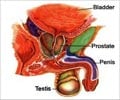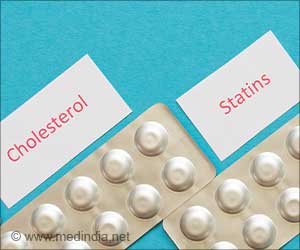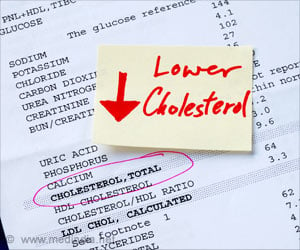Researchers have realized that low cholesterol will protect men from aggressive form of prostate cancer.
The study led by Johns Hopkins researchers showed that having lower levels of heart-clogging fat might cut a man's risk of high grade prostate cancer by nearly 60 percent."For many reasons, we know that it's good to have a cholesterol level within the normal range," said Elizabeth Platz, Sc.D., M.P.H., associate professor at the Johns Hopkins Bloomberg School of Public Health and co-director of the cancer prevention and control program at the Johns Hopkins Kimmel Cancer Centre.
"Now, we have more evidence that among the benefits of low cholesterol may be a lower risk for potentially deadly prostate cancers," she added.
During the study, researchers analyzed data from 5,586 men aged 55 and older enrolled in the Prostate Cancer Prevention Trial from 1993 to 1996. Some 1,251 men were diagnosed with prostate cancer during the study period.
They found that men with cholesterol levels lower than 200 mg/dL had a 59 percent lower risk of developing high-grade prostate cancers, which tend to grow and spread rapidly.
Cholesterol levels had no significant effect on the entire spectrum of prostate cancer incidence, only those that were high-grade, said Platz.
Advertisement
"Cholesterol may affect cancer cells at a level where it influences key signaling pathways controlling cell survival. Cancer cells use these survival pathways to evade the normal cycle of cell life and death," said Platz.
Advertisement
Source-ANI
TAN










![Prostate Specific Antigen [PSA] Prostate Specific Antigen [PSA]](https://www.medindia.net/images/common/patientinfo/120_100/prostate-specific-antigen.jpg)




